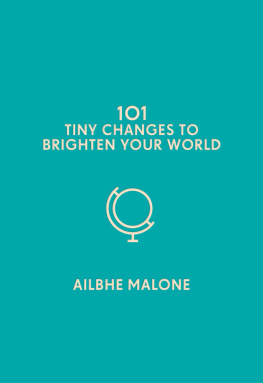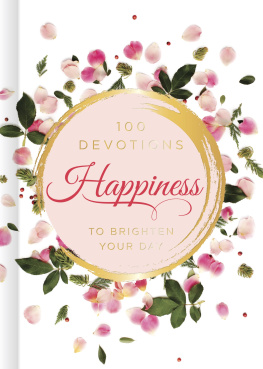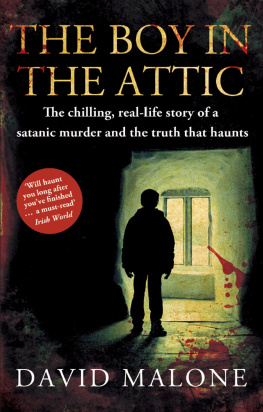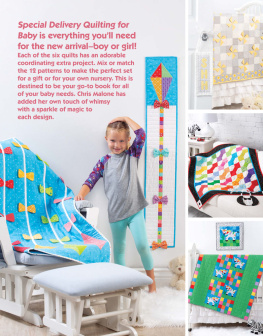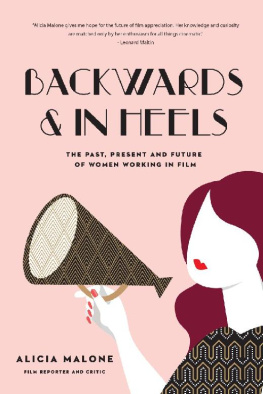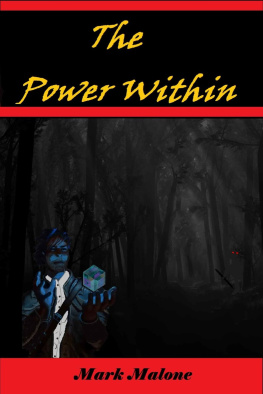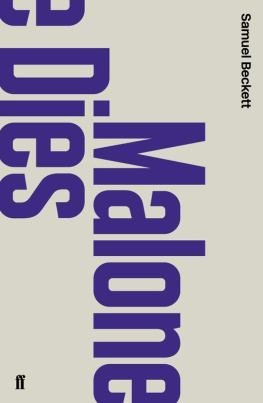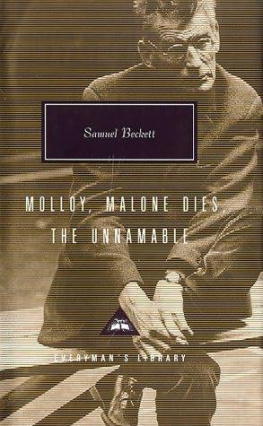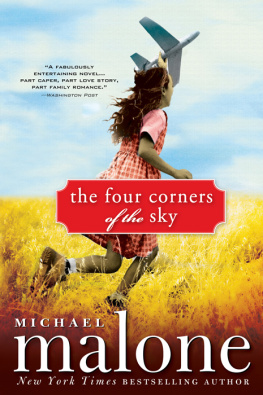Ailbhe Malone - 101 Tiny Changes to Brighten Your World
Here you can read online Ailbhe Malone - 101 Tiny Changes to Brighten Your World full text of the book (entire story) in english for free. Download pdf and epub, get meaning, cover and reviews about this ebook. year: 2019, publisher: Icon Books Ltd, genre: Home and family. Description of the work, (preface) as well as reviews are available. Best literature library LitArk.com created for fans of good reading and offers a wide selection of genres:
Romance novel
Science fiction
Adventure
Detective
Science
History
Home and family
Prose
Art
Politics
Computer
Non-fiction
Religion
Business
Children
Humor
Choose a favorite category and find really read worthwhile books. Enjoy immersion in the world of imagination, feel the emotions of the characters or learn something new for yourself, make an fascinating discovery.
- Book:101 Tiny Changes to Brighten Your World
- Author:
- Publisher:Icon Books Ltd
- Genre:
- Year:2019
- Rating:5 / 5
- Favourites:Add to favourites
- Your mark:
- 100
- 1
- 2
- 3
- 4
- 5
101 Tiny Changes to Brighten Your World: summary, description and annotation
We offer to read an annotation, description, summary or preface (depends on what the author of the book "101 Tiny Changes to Brighten Your World" wrote himself). If you haven't found the necessary information about the book — write in the comments, we will try to find it.
101 Tiny Changes to Brighten Your World — read online for free the complete book (whole text) full work
Below is the text of the book, divided by pages. System saving the place of the last page read, allows you to conveniently read the book "101 Tiny Changes to Brighten Your World" online for free, without having to search again every time where you left off. Put a bookmark, and you can go to the page where you finished reading at any time.
Font size:
Interval:
Bookmark:
Ailbhe Malone is a freelance journalist, a former founding member of BuzzFeed UK and its Lifestyle Editor. She has consulted on Lifestyle for BuzzFeed internationally and has featured as an industry expert on BBCs The Apprentice and for Phaidons Where to Eat Pizza (2016). She has worked for Nylon (US), the Guardian (UK), Heat and Wired.
Hello! If youre a first-time reader, welcome. If youre reading this book because you read my first book, 101 Tiny Changes to Brighten Your Day, welcome back.
Lots has changed in my life since I wrote my first book. I got married! I published a book! I lost my job! I wrote a second book! My anxiety, however, did not change. I still spent the morning of my wedding in the bathroom, doubled over with anxious stomach pains at the thought of everyone seeing me and how I might let them down. I still felt like a massive imposter when I published my first book, and probably did it a disservice by saying: Oh, its non-fiction, just a gift book on self-care. And I still struggled with trying to be open about my mental health in a way that was authentic to me but that also wasnt too open.
What did change though, was how I reacted to my anxiety. With the help of a therapist, Ive gotten a lot better at noticing how my anxiety is presenting itself and at sitting with it, rather than allowing it to overwhelm me. For example, my body was freaking out on my wedding morning, but in my head I could say: Ah, OK, obviously you are nervous! It is normal to be nervous! When I found out that my department at work was being cut and I was going to be made redundant, I began trying to plan all the ways I could control the outcome. I would have a job within a month, maximum. I would also use the time off to go to the gym lots and maybe travel to see friends abroad. I consumed myself with these plans and attempts to control what was happening to me, before I realised that I wasnt allowing myself to actually feel anything. I had put so much value on who I was in relation to my job that I didnt want to think about who I would be without that work. I had to start thinking more externally than internally.
The first book focused on how to use self-care to look after yourself, to treat yourself like a friend. In this book, I want to explore how self-care can be outward-facing: self-care can mean examining how you interact with the world around you. It can mean advocating for yourself at work and examining how you thrive in different spaces. It can mean taking pleasure in the natural world, and also taking responsibility for the environmental impact you make on the planet. It can mean having difficult conversations with family members, in a thoughtful and supportive way. It can also mean examining relationships with people who dont support you, or who make you feel bad about the way you live your life.
All of this is to say that change never happens all at once. You dont make a birthday cake by putting two already-cooked sponges in the oven. Process, and thoughtful activity, is what leads to real change. Think of it this way: my friend Jeanne posted on her Instagram the other day: I was running late for something, but remained on the bus instead of taking a taxi and it was fine, even though I was seven minutes late. Had a veggie-ish dinner. Didnt internet shop on payday! Her post is a great reminder to be proud of yourself for making an effort small changes add up, no matter how tiny.
These concerns are generalised based on my experiences as a cisgender white woman Im under no illusions that if youre LGBTQ+ or a person of colour you have other things to deal with instead of, or in addition to, these things. Ive tried to include resources here about how to support friends and family members who will be experiencing a different set of difficulties, working within a system that doesnt support them and that expects, but fails to reward, their labour.
As ever, take the tips in this book as suggestions rather than rules. If my experiences differ from yours, or if the tips dont feel right for you, then scribble them out and write your own alternatives in their place. Self-care is about whats right for you, and the best person to decide what that means is, well, you.

This chapter will help you nurture your friendships and be a better friend to yourself.
Ive always found it easy to make friends and to keep friendships alive at least, thats what Id always believed. But as Ive grown older, and my close friends no longer live in the same city as me, Ive had to learn how to nurture friendships that dont involve a ten-minute bus ride to watch TV. At university, my favourite thing was how all my friends lived in each others pockets. We even copied out each others class timetables so wed always know who was around for a coffee or some nourishing 11am chips in the canteen. Even in my early twenties, most of my friends stayed in those pockets I could practically ping-pong around the city and check off seeing my friends, catching up and fuelling our relationships. But as people move out of cities and back to their hometowns, and jobs become more important, its tricky to feel like youre still getting quality time.
If youre in this situation and you hold on to all of your worries, questions and pieces of news for when you see your friends IRL, you miss out on a lot in between. So, a lot of the tips in this section look at the ways you can nurture friendship from a distance.
Catching up in person is wonderful but can bring challenges too. For instance, my girlfriends and I had a weekend away in Edinburgh the other year, and it was the most fun Ive had in a long time. But I still had to push down my fears that nobody would want to spend an extended amount of time with me and that all my ideas for activities were bad (for example, a wet and windy hike). But really, so what if they were bad? Its OK for one friend to enjoy hiking and the other to prefer to check out local coffee shops. Theres no way to get things wrong. Maybe, like me, you really value time to chat and catch up in a cosy setting eating crisps on the sofa is the ideal Saturday night. It takes courage to ask for that from your friends, to say: I know theres a great DJ playing tonight, but Id really like to catch up over a pizza. Im proud of myself for asking for what I want and in doing so, I think Ive helped my friends to ask for what they want too. It feels like a gift to be able to let your friendships grow and change.
This chapter will help you nurture your friendships in the same way, but will also encourage you to check in on friendships that maybe arent serving you as well as they could. Change is OK, and theres no need to fear people changing over time youve changed too! But like a tree, while leaves may drop off and new buds may form, the trunk of your friendship will always stay firm and rooted in the ground.
Make sure you and your friend have the same expectations of each other and set them out clearly.
For example, if you have a friend who loves to text you their every waking thought, but youre not great at texting back, let them know. Say: Hey, Im not great at responding to text messages, but I see them, and Im glad youre thinking of me.
Ask your friends how they want to be supported.

Font size:
Interval:
Bookmark:
Similar books «101 Tiny Changes to Brighten Your World»
Look at similar books to 101 Tiny Changes to Brighten Your World. We have selected literature similar in name and meaning in the hope of providing readers with more options to find new, interesting, not yet read works.
Discussion, reviews of the book 101 Tiny Changes to Brighten Your World and just readers' own opinions. Leave your comments, write what you think about the work, its meaning or the main characters. Specify what exactly you liked and what you didn't like, and why you think so.

